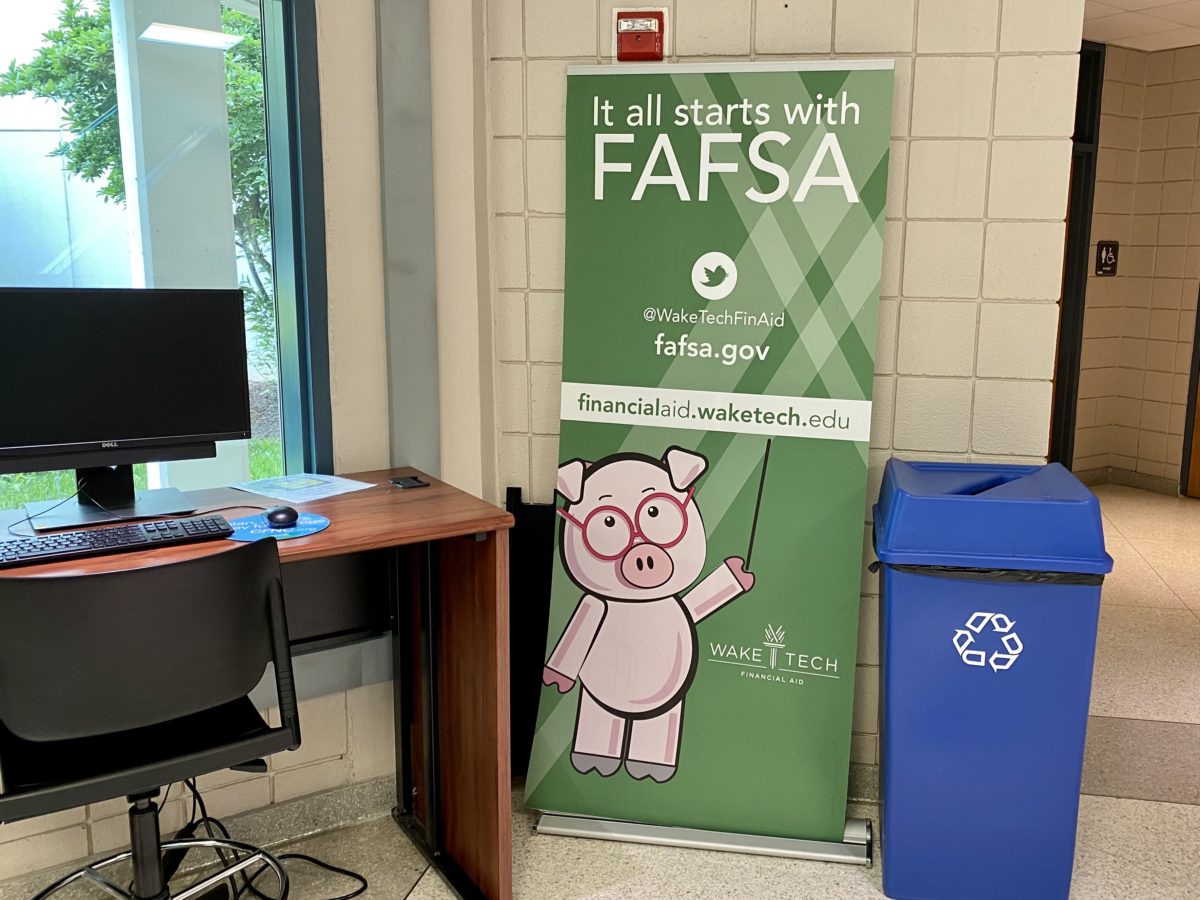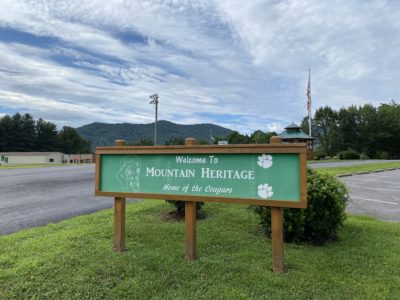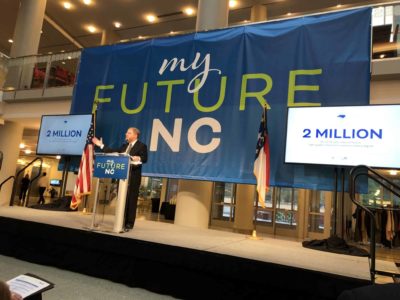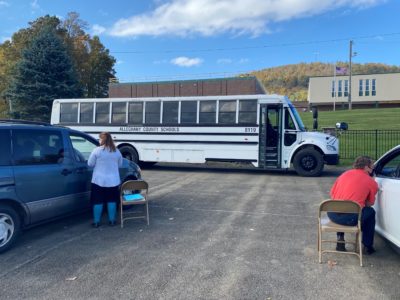

|
|
The 2022-2023 Free Application for Federal Student Aid (FAFSA) cycle begins on Oct. 1.
Completing the application is a necessary step for prospective college students to receive financial aid. Not only does it make you eligible for federal aid, such as Pell Grants or work-study programs, but North Carolina’s colleges and universities also use the form to divvy up state aid.
The form is open until June 30, 2023. Many North Carolina schools give out aid on a first-come, first-served basis, so it’s best to fill it out as soon as possible, even if you haven’t finalized your plans.
With many schools back for in-person instruction, some districts may find that it’s easier to encourage students to fill out the FAFSA this year. But that doesn’t mean the pandemic no longer has an impact.
Since March 2020, 1.5 million North Carolinians have applied for unemployment insurance. The state’s completion rate also dipped last year, which could hurt the state’s progress toward its goal of having 2 million residents with a credential or degree by 2030.
But with affordability being one of the main barriers to postsecondary attainment, it’s just as important as ever for students to fill out the FAFSA. Whether you’re a prospective student yourself or you’re an educator trying to encourage your students to fill out the FAFSA, we broke down what you need to know.
How does the FAFSA work?
When it comes to the application itself, families will have to report their income based on 2020 tax returns. That data will determine a family’s expected out-of-pocket college payments. If those returns don’t reflect families’ current financial situations, students can file appeals for a professional judgment review with the school they plan to attend. That process requires them to provide additional documentation to explain their situation, and it can take time — all the more reason that students should fill out the FAFSA as soon as possible.
Here is a guide from Federal Student Aid that walks you through the process of applying for and receiving aid. Here is more information on what you need to fill out the FAFSA. And here is where you can find answers to any questions you have.
A quick look at the data
Through Sept. 3, 2021, 61.1% of seniors completed the FAFSA for the 2021-22 cycle. This is a 3% dip from the previous year, but Cris Charbonneau, director of advocacy and engagement for myFutureNC, says this is a win considering how COVID-19 disrupted that year.
North Carolina’s completion rate for last year is also above the national average of 58.6%. North Carolina ranks 15th nationally.
By 2030, myFutureNC has set a FAFSA completion rate goal of 80% – the same as neighboring Tennessee.
Why does the FAFSA matter?
According to a 2020 report by Education Strategy Group (ESG), students who complete the FAFSA are more likely to enroll in higher education – 90% of FAFSA completers attend college directly after high school, compared to just 55% of students who don’t complete the FAFSA. And, FAFSA completers are more likely to persist in their coursework and obtain a degree.
However, a third of students don’t fill out the FAFSA. This leaves an estimated $3.4 billion in aid on the table each year.
Additionally, students of color are less likely to complete the FAFSA – 74% of African-American students and 66% of Hispanic students complete it, compared to 82% of white students.
Income plays a role as well. According to an analysis by the National College Access Network, North Carolina students from lower-income districts were less likely to complete the FAFSA than students from higher-income district.
Numerous barriers exist to completing the FAFSA — from form complexity to a lack of awareness to parental mistrust. Learn more about those barriers and what can be done to overcome them here.
“Don’t stop yourself from an opportunity, even if you don’t know if (a degree) is something that you’re going to pursue,” Charbonneau said. “Really do start out with the FAFSA, because it allows you to make that decision.”
Resources and support
NCSEAA
The North Carolina State Education Assistance Authority (NCSEAA) is an organization that helps North Carolinians pay for education. Because the FAFSA is the required application for state need-based aid, NCSEAA offers FAFSA outreach support, such as training for high school counselors.
Kathryn Marker, director of grants, training, and outreach at NCSEAA, said students may not realize they can reach out directly to financial aid offices at colleges and universities, even if they haven’t been accepted.
“They can just call and say, ‘Well, I’m filling out the FAFSA, and I need some help,'” she said. “And they will offer a lot of their own events, for example, but they will also help someone on the phone or have them come in and make an appointment to work out the details.”
CFNC
The College Foundation of North Carolina is a free service provided by a collaboration of Pathways (the NC Department of Public Instruction, the NC Community College System, the NC Independent Colleges and Universities, and the University of North Carolina System), the NCSEAA, and College Foundation, Inc.
When it comes to the FAFSA, CFNC’s website offers a host of resources — including an interactive map to help students find local financial aid assistance, a form students can fill out to receive personalized FAFSA assistance, and a host of videos on how to fill out the application.
CFNC also has FAFSA tips for specific student populations, such as adult learners or refugees, and has fact sheets available in both English and Spanish.
LatinxEd
Latinx Education provides “targeted, multi-year support to Latinx students and immigrant families striving for higher education and greater opportunity.” One of the group’s initiatives is College y Consejos, which is a free online college advising space for Latinx students.
Countdown to College
North Carolina’s Countdown to College is an annual CFNC event held in October that aims to support high school seniors in completing three important college enrollment steps: residency determination, FAFSA, and applications.
This year’s slate of virtual events includes multiple sessions on the FAFSA and Residency Determination Service (RDS) the week of Oct. 11, followed by Financial Aid 101 sessions the week of Oct. 25. The Financial Aid 101 sessions will include information on how to ask for professional judgment if a family’s financial situation has changed since 2020.
As part of the event, many North Carolina colleges and universities will waive their application fees from Oct. 18-22.
Behind the Story
Portions of the resources and data sections of this article were originally reported by Analisa Sorrells in her article, “The 2021-22 FAFSA opens today. Here’s what’s different this year.”








